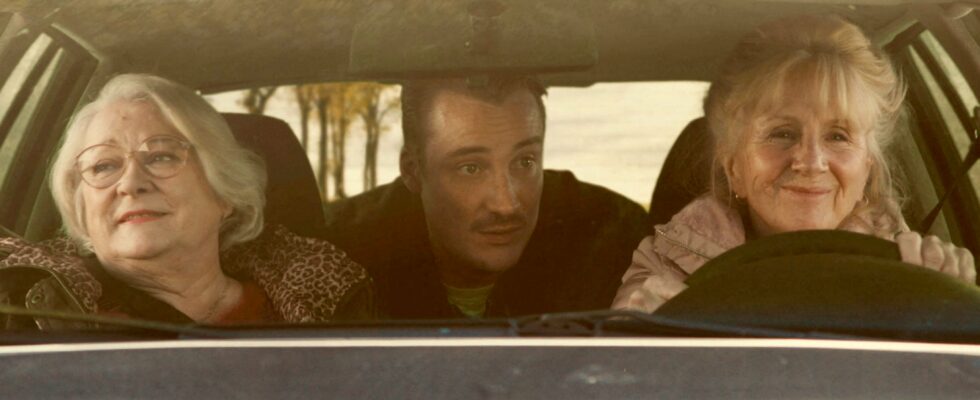They both walk in the woods with their wicker basket, wooden handle, rubber boots, purple quilted down jacket for one (Hélène Vincent), fleece parka, panther lining, for the other (Josiane Balasko) *, two old friends on a mushroom hunt. They play peasant girls. Everything is wrong about them. We immediately see that they are not from the area. The forest around them, the village where they live, the people they meet, the weather, everything repels them, contradicts them, denounces them as usurpers. Even the mushrooms they collect are hostile to them… to death.
For almost twenty years that they have lived in the countryside, they have not succeeded in truly taking root, they will never succeed, because the spectator learns this quickly enough not to cringe in front of this parade of anachronisms, socio-cultural discrepancies, in reality, Michèle and Marie-Claude are Parisians. They always will be. There are no more Parisians than these two. As better friends as the Île Saint-Louis and the Île de la Cité, as accomplices as two sidewalk agarics… After unwinding the cable, age helping, they got fed up with Paname, they dumped the moorings and set off in search of the little house on the prairie, just to start their lives again. A healthy life, preferably, a life on the right path, for once, and sheltered from their heavy liabilities. Except that our two companions in misery have one weak point in common: they had a child. Marie-Claire has a son (Pierre Lottin) who is getting out of jail. Michèle has a daughter (Ludivine Sagnier) who herself has a son, Laurent (Garlan Erlos), barely 10 years old, and a husband, Bernard (Malik Zidi), who has just left her.
In Léo Ferré’s song, the island of Saint-Louis goes in search of the treasure island, but discovers that it has drowned: “For the wise islands/Point of great voyages/The books of images/Are made in Paris.” The proof: it is also in Paris that the crime in this provincial police comedy will take place.
They didn’t “stay young”
François Ozon wanted to film two women, old, but who have not “remained young” as it would be appropriate to age. Of course, it’s not only in the countryside that we become old, but it helps. The company of the trees, no doubt, who also let themselves go. In Paris, we put on makeup, we move, the seasons don’t pass, they bump into the Haussmannian facades, bounce off the eternally gray roofs. In Paris, we never stop getting younger, even when there are a few too many of us at the Monday afternoon cinema screenings.
What I like about Ozon is that he never goes beyond the things he can’t say or film. We could criticize him for a certain withdrawal, a prudence, he stops before breaking his nose. He always did it like that, even when we thought he was transgressive. It would be a bit the opposite of Coppola who breaks down all the doors shouting “Move away, it’s me!” The tiring guy.
Not asking actresses what they are not capable of doing is also a way of making realistic, fair, precise cinema. It stops the emotion just before it makes us cry. As if he wanted us to remain lucid until the end. An example that will perhaps illustrate what I’m trying to say. There is this little Laurent, tossed between his cantankerous mother and his loving grandmother. Ozon almost never gives him a voice. What’s the point? We know very well what he has to say about adults for whom he is the object of rivalry and desire. Ozon will keep him on the edge of the drama throughout the film, while it is around him that everything unfolds and changes. As in any good thriller, the enigma is no longer what we think, and light shines at the end, on the unsuspected love story, and Ozon says “Cut!” before it causes a scandal. And it’s much better that way.
*”When autumn comes”, by François Ozon, in theaters on October 2.
.
